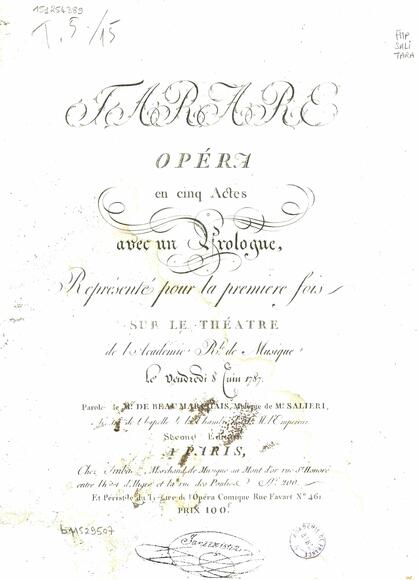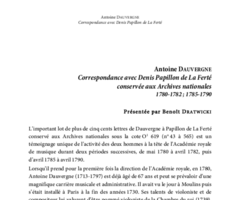Tarare

Opéra en un prologue et cinq actes.
Composed to a libretto by Beaumarchais, Tarare is a five-act opera first performed at the Paris Opéra on 8 June 1787. Beaumarchais’ only libretto pays tribute to bourgeois values and denounces tyranny, in the same irreverent vein as the Marriage of Figaro. The action is set in a far-off land where the morals apparently differ greatly to those in Europe—a fictional Asiatic kingdom ruled by Atar, a Sultan jealous of the popularity of the valiant soldier, Tarare, whose wife, Astasie, Atar endeavours to abduct by way of revenge. The rescue attempt by Tarare and Calpigi, Spinette’s husband and a Christian prisoner of the Sultan, who accompanies him in his undertakings, is the opportunity for a virulent criticism of authoritarian power. Cunningly disguised, the two men break into the Sultan’s seraglio, revealing a world of vice under the authority of an idle, petty monarch, filled with hybris or self-pride. At the end of the work, Atar is overthrown and Tarare is crowned by the people. The Prologue is the most original and probably the most subversive part of the work. In the tradition of the genre of tragic opera, to which this work belongs, it portrays two allegories, La Nature and Le Génie du Feu, whose dialogue mocks in particular “the pride of the powerful and […] the Wealthy of an Empire” and refers to concepts such as natural equality and its corruption by society… to such an extent that it is surprising that a work like this could have escaped censure at the time. The opera received mixed reviews: it was criticised for its musical platitudes and an overly complicated libretto. Nevertheless, Tarare was a big hit with audiences. Its success led Emperor Joseph II to commission Salieri to produce an Italian version of the work, which was performed the following year under the title of Axur re d’Ormus.




